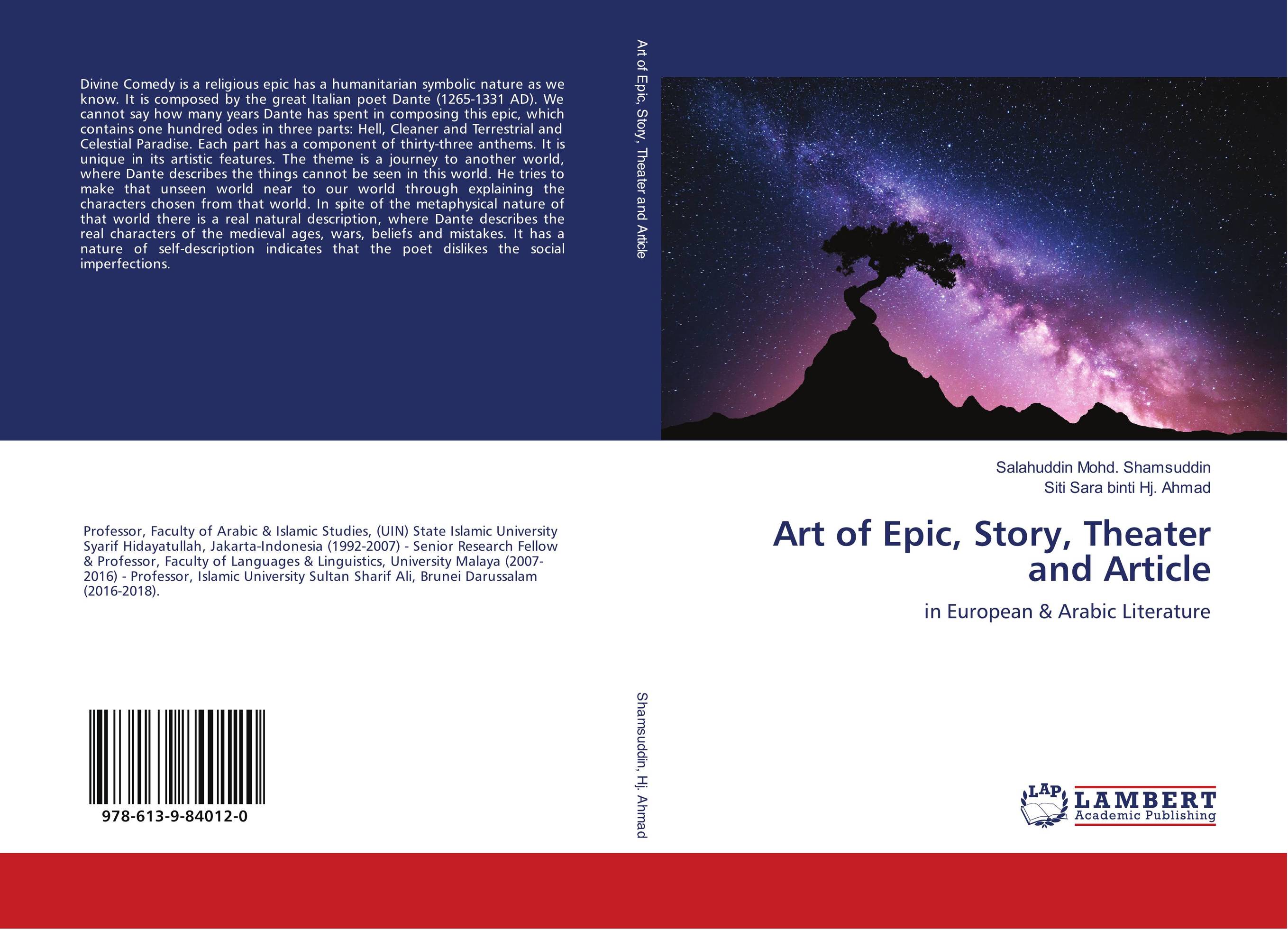| Поиск по каталогу |
|
(строгое соответствие)
|
- Профессиональная
- Научно-популярная
- Художественная
- Публицистика
- Детская
- Искусство
- Хобби, семья, дом
- Спорт
- Путеводители
- Блокноты, тетради, открытки
Art of Epic, Story, Theater and Article. In European & Arabic Literature

В наличии
| Местонахождение: Алматы | Состояние экземпляра: новый |

Бумажная
версия
версия
Автор: Salahuddin Mohd. Shamsuddin and Siti Sara binti Hj. Ahmad
ISBN: 9786139840120
Год издания: 2018
Формат книги: 60×90/16 (145×215 мм)
Количество страниц: 140
Издательство: LAP LAMBERT Academic Publishing
Цена: 24598 тг
Положить в корзину
Позиции в рубрикаторе
Отрасли знаний:Код товара: 206898
| Способы доставки в город Алматы * комплектация (срок до отгрузки) не более 2 рабочих дней |
| Самовывоз из города Алматы (пункты самовывоза партнёра CDEK) |
| Курьерская доставка CDEK из города Москва |
| Доставка Почтой России из города Москва |
Аннотация: Divine Comedy is a religious epic has a humanitarian symbolic nature as we know. It is composed by the great Italian poet Dante (1265-1331 AD). We cannot say how many years Dante has spent in composing this epic, which contains one hundred odes in three parts: Hell, Cleaner and Terrestrial and Celestial Paradise. Each part has a component of thirty-three anthems. It is unique in its artistic features. The theme is a journey to another world, where Dante describes the things cannot be seen in this world. He tries to make that unseen world near to our world through explaining the characters chosen from that world. In spite of the metaphysical nature of that world there is a real natural description, where Dante describes the real characters of the medieval ages, wars, beliefs and mistakes. It has a nature of self-description indicates that the poet dislikes the social imperfections.
Ключевые слова: One Thousand and One Night, Standings, Disciples and Cyclones, Message of Forgiveness, Message of ?ayyi Ibn Yaqdh?n, Story of Sal?m?n and Abs?l, Epic, story, theater



